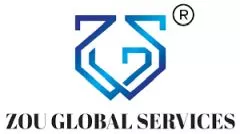- in South America
Introduction
In the contemporary business landscape, where data acts as the backbone of decision-making, the significance of robust data governance cannot be overstated. As enterprises increasingly rely on data to drive their strategies, the need for a structured approach to managing this invaluable asset grows exponentially. A data governance program stands out as a critical framework that ensures data across the organization is accurate, accessible, secure, and used effectively.
Data governance goes beyond mere data management; it encompasses a set of procedures and controls designed to manage data assets comprehensively. This blog will delve into what a data governance program entails and explore its numerous benefits, from enhancing operational efficiency to ensuring compliance with stringent regulations. By understanding these benefits, businesses can make informed decisions about implementing or refining their data governance strategies to maximize efficiency and secure their competitive edge in a data-driven world.
What is a Data Governance Program?
A data governance program is a comprehensive system designed to manage an organization's data assets effectively. It establishes the policies, procedures, standards, and metrics that govern the collection, management, quality, and use of data across an enterprise. The aim is to ensure that data is used securely, efficiently, and ethically to support business objectives.
Primary Objectives of a Data Governance Program
- Ensure Data Quality: Maintain the accuracy, completeness, and reliability of data throughout its lifecycle.
- Enhance Data Security: Protect data from unauthorized access and breaches, ensuring privacy and compliance with regulatory standards.
- Facilitate Data Accessibility: Make data easily accessible to authorized users while maintaining control over its distribution and usage.
- Support Compliance Efforts: Help organizations meet legal and regulatory obligations related to data management and protection.
Key Components of a Data Governance Program
- Data Governance Framework: The structural backbone, which includes the roles, responsibilities, and processes involved in managing data assets.
- Data Stewardship: Designation of data stewards who are responsible for data quality and control within their departments.
- Data Policies and Procedures: Development and implementation of policies that dictate how data should be handled and shared within the organization.
- Data Security Measures: Deployment of security protocols and tools to prevent data loss and unauthorized access.
- Monitoring and Auditing: Regular reviews and audits to ensure the governance program is effective and complies with internal and external standards.
Implementing these components forms the foundation of a successful data governance program that not only supports daily operational needs but also strategic business goals.
Key Benefits of a Data Governance Program
Implementing a data governance program brings a myriad of advantages that can transform an organization's handling of data into a strategic asset. Here are the core benefits that underscore the importance of data governance in today's business environment:
1. Improved Data Quality
- Consistency and Accuracy: By establishing and enforcing data quality standards, a governance program ensures that all organizational data is accurate, consistent, and reliable.
- Reduced Errors: High-quality data reduces errors and discrepancies, which can significantly impact operational efficiency and decision-making processes.
2. Enhanced Compliance and Security
- Regulatory Compliance: Data governance helps organizations comply with various data protection laws, such as GDPR and DPDPA, by ensuring proper data handling practices are in place.
- Improved Data Security: With structured data governance, security measures are rigorously applied, minimizing the risks of data breaches and unauthorized access.
3. Operational Efficiency
- Streamlined Processes: Data governance standardizes data management practices across the organization, leading to more efficient and streamlined processes.
- Cost Savings: Efficient data management reduces costs related to data storage, maintenance, and compliance penalties due to non-conformity with legal standards.
4. Better Decision-Making
- Informed Decisions: Access to high-quality, well-managed data allows decision-makers to rely on accurate information, leading to more informed and effective strategic choices.
- Predictive Analytics and Insights: Robust data governance enables the use of advanced analytics tools that can predict trends, perform risk analysis, and uncover valuable business insights.
5. Increased Transparency
- Clear Data Lineage: A well-structured data governance program provides clear visibility into data origins, movements, and transformations, enhancing transparency.
- Accountability: Data governance assigns clear roles and responsibilities for data management, which improves accountability and trust within the organization and with external stakeholders.
These benefits demonstrate how a data governance program not only supports compliance and enhances security but also drives significant business value by improving operational efficiencies and decision-making capabilities.
Challenges in Implementing a Data Governance Program
Implementing a data governance program is not without its challenges. These can range from internal resistance to complexities related to technology and compliance. Understanding these challenges is key to developing strategies that ensure successful implementation.
1. Cultural Resistance
- Employee Pushback: Employees may resist changes to established processes or feel threatened by new compliance measures.
- Lack of Awareness: There may be a general lack of understanding about the benefits of data governance, leading to low priority and support from staff.
Strategies:
- Engagement and Education: Foster a culture that values data governance through continuous education and communication about its benefits.
- Inclusive Planning: Include employees from various departments in the planning and implementation phases to encourage buy-in and participation.
2. Complexity of Data Systems
- Diverse Data Sources: Organizations often deal with data spread across multiple systems and formats, which can complicate integration and management.
- Legacy Systems: Older systems may not easily support new data governance policies or technologies.
Strategies:
- System Integration Solutions: Invest in technology that facilitates data integration and management across disparate systems.
- Gradual Implementation: Start with manageable, smaller-scale projects to gradually integrate data governance into older systems.
3. Regulatory Compliance
- Evolving Regulations: Data protection laws and regulations can change frequently, requiring ongoing adjustments to compliance strategies.
- Multi-Jurisdictional Compliance: Organizations operating in multiple regions may face difficulties in complying with various local and international laws.
Strategies:
- Dedicated Compliance Team: Establish a specialized team to continuously monitor and respond to regulatory changes.
- Unified Compliance Framework: Develop a flexible compliance framework that can adapt to different regulatory environments.
4. Resource Constraints
- Financial Limitations: Implementing a comprehensive data governance program can be costly, especially for smaller organizations.
- Skill Gaps: There may be a shortage of skilled professionals who understand both the technical and regulatory aspects of data governance.
Strategies:
- Strategic Resource Allocation: Prioritize resource allocation to critical areas of data governance.
- Training and Development: Invest in training existing staff and consider outsourcing or partnering with data governance experts when necessary.
Addressing these challenges requires a strategic approach tailored to the specific needs and circumstances of the organization. By anticipating and planning for these obstacles, businesses can enhance their chances of successfully implementing a robust data governance program.
Implementing a data governance program is essential for any organization looking to leverage data effectively and responsibly in today's digital landscape. Such programs not only ensure compliance with complex regulatory landscapes but also enhance operational efficiency, improve data quality, and most importantly, build trust with customers and stakeholders.
Despite the challenges, including cultural resistance, system complexity, regulatory compliance, and resource constraints, the benefits of a robust data governance program far outweigh the difficulties. With the right strategies in place—such as engaging employees, integrating systems effectively, maintaining flexible compliance frameworks, and wisely allocating resources—organizations can overcome these hurdles and realize the full potential of their data assets.
Are you ready to harness the power of your data with a robust governance strategy that drives business success and builds foundational trust?
What is a data governance program?
A data governance program involves a set of policies, procedures, and technologies implemented by an organization to manage its data assets effectively. It aims to ensure data quality, security, compliance, and efficient use across the organization.
Why is data governance important for businesses?
Data governance is crucial because it helps organizations ensure data accuracy, enhance security, meet compliance requirements, and make better decisions. Effective data governance also improves operational efficiencies and builds trust with customers and stakeholders.
What are the main components of a data governance program?
Key components include data quality management, data security protocols, compliance mechanisms, and policies for data usage and privacy. It also involves roles and responsibilities like data stewards and governance committees.
How does a data governance program enhance compliance?
A data governance program helps organizations comply with various data protection regulations by establishing clear protocols for data handling, ensuring transparency, and documenting processes for audits. It also facilitates quick adaptation to regulatory changes.
What challenges might an organization face when implementing a data governance program?
Challenges include cultural resistance to change, the complexity of integrating diverse data systems, keeping up with evolving regulations, and resource constraints. Effective strategies need to be employed to overcome these obstacles.
Can small businesses benefit from data governance?
Yes, businesses of all sizes can benefit from data governance. For small businesses, it can streamline operations, reduce risks, and build customer trust, which are crucial for growth and sustainability.
How often should data governance policies be reviewed?
Data governance policies should be reviewed regularly, at least annually, or more frequently if there are significant changes in the business environment, technology, or relevant laws and regulations.
Originally published 15 May 2024
The content of this article is intended to provide a general guide to the subject matter. Specialist advice should be sought about your specific circumstances.


